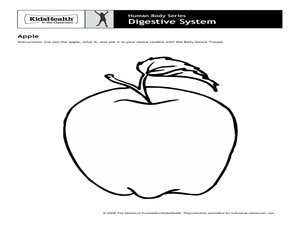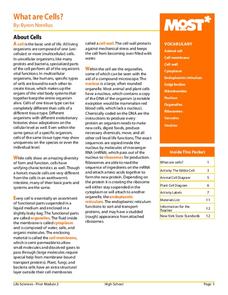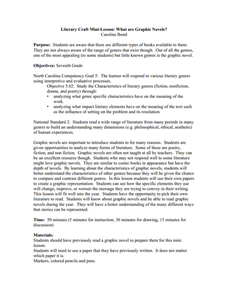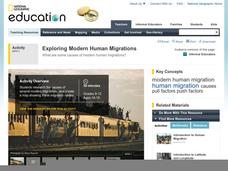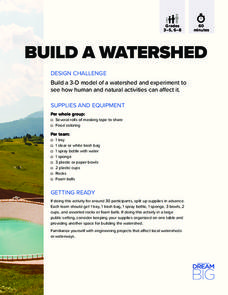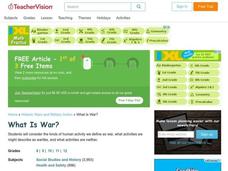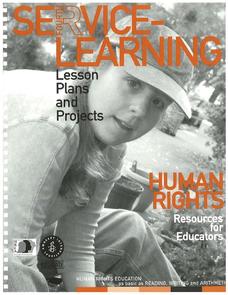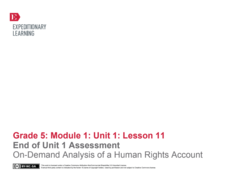Curated OER
Human Body Series - Digestive System
With articles entitled, "What's Puke?" and "What is a Fart?" this digestive system lesson is sure to be a gas! Elementary anatomists do a belly dance to illustrate how food moves through the digestive system and then design a board game...
Curated OER
Human Body Series - Cardiovascular System
Pump up your class while studying the cardiovascular system with this pair of activities. In one, learners record heart rates during different actions. In the second, they read kid-friendly heart health articles online and then write a...
Computer Science Unplugged
The Chocolate Factory–Human Interface Design
What is this? What is it for? How does it work? Challenge the class to think about to how to design a new chocolate factory for the Oompa-Loompas to make it easy to use. The activity is the first of a three-part series on...
College Board
2006 AP® Human Geography Free-Response Questions
People aren't the only things moving—businesses do, too. Scholars examine what causes human migration and its effects as well as what factors go into a business's decision to relocate. They analyze the complex dynamics in human...
Creative Visions Foundation
Introduction to the Universal Declaration of Human Rights
Many people don't realize that all people on the planet are entitled to certain inalienable rights. Scholars discuss the subject with the first of four lessons in the Introduction to the Universal Declaration of Human Rights series....
College Board
2011 AP® Human Geography Free-Response Questions
How have Mexico's largest cities help shape the destiny of that country? What insights can a ninteenth-century economist give us about population growth? Two essay-style questions help your learners unravel complicated relationships....
IBM
The Human Body
Every moment, the systems in your body are working together to keep you breathing, standing, and thinking. Elementary schoolers explore the human body and its systems with an impressive, 15-page lesson plan that should leave your...
Consortium for Ocean Science Exploration and Engagement (COSEE)
Ocean Acidification: Whats and Hows
Open this lesson by demonstrating the production of acidic carbon dioxide gas by activated yeast. Emerging ecologists then experiment with seashells to discover the effect of ocean acidification on shelled marine organisms. They measure...
Baylor College
Pre-Assessment Activity: What Do You Know About Microbes?
In an introductory activity, youngsters take a pre-assessment quiz, get a grasp of a gram of mass, and then estimate the mass of microorganisms that live within a human body. Using Glo Germ™, a material that allows you to simulate the...
Curated OER
Take Home Lab: What Are Some Traits in Your Family?
Young scholars use this following the study of pedigree designs and human genetics. Four pedigree designs are prepared of your (student's) family's genetics. They construct the pedigree representing two, three, or four generations.
Curated OER
What Are Cells?
Energize the cells of young biologists with an edible life science activity. Engaging students in exploring the inner workings of plant and animal cells, this activity involves using colored jello and various sweet and...
Appalachian State University
What Are Graphic Novels?
To do this engaging and pleasurable activity, your learners should have already read a graphic novel, and produced a piece of writing that can be reproduced into the format of a graphic novel. This exercise provides a script that...
National Geographic
Exploring Modern Human Migrations
Using maps, images, websites, and handouts, learners work to understand the nature of human migrations. They compare and contrast human migration from the past to the present, identify causes for migration, and trace migration routes on...
DiscoverE
Build a Watershed
What's the best way to learn how watersheds work? Build one! Combining engineering, the water cycle, and ecology concerns, the activity is the perfect fit for an interdisciplinary unit. Teams construct a model watershed with simple...
Curated OER
Human Body Lessons
Learners read "The Magic School Bus in the Human Body" and discuss the importance of maintaining a healthy body. They create a hinge and joint paper skeleton, follow the journey of a hamburger through the digestive tract, jump rope and...
Curated OER
Human Genetics Lesson
Youngsters are assigned the task of interviewing a family member or a neighbor and asking them about any genetic disorders that are present in their family history. They pretend that they are about to have a baby that is carrying a...
Curated OER
Homophobia: What is It? What Can We Do About It?
A two-part lesson focuses on the sensitive issues of homophobia, discrimination, sexuality, and gender. Middle schoolers discuss individual and institutional discrimination, personal rights, homosexuality, and bullying.
School Improvement in Maryland
Demographic Investigation
What are the factors that influence voting patterns? How do these factors influence government funding? Is participation the squeaky wheel gets the grease? Class members interpret graphs and analyze trends to determine what...
Seussville
What Can Your Class Do?
Inspire scholars to do their part for planet Earth with a read-aloud of Dr. Seuss's The Lorax, and variety of activities designed to boost the environmental activist in us all. Activities include writing poems about the Earth,...
WindWise Education
What is Wind Power's Risk to Birds?
How is risk determined? Through the use of a reading passage, individuals or groups learn about bird interactions with man made structures along with wind turbines. Pupils use information from the second reading passage to conduct an...
Curated OER
What Is War?
What kinds of human activity do we define as "warlike"? Middle and high schoolers examine various definitions of war and types of warfare, especially as these descriptions relate to the kinds of war we are witnessing at the beginning of...
WindWise Education
What Factors Influence Offshore Wind?
What is that out in the water on the horizon? Teams work together to study the coastline using maps to determine the best and worst locations to place an offshore wind farm. The teams then build a scale model wind farm to see what it...
Amnesty International
Human Rights and Service Learning (Part 1)
What better way is there to teach about human rights than by seeing them firsthand? Introduce your class or club to the spirit of service through a myriad of service project ideas. First in a series of human rights instructional...
EngageNY
End of Unit 1 Assessment: On-Demand Analysis of a Human Rights Account
The last instructional activity in this unit about human rights consists of a final assessment. To demonstrate the skills your class has acquired throughout this unit, they will work with a new article entitled "From Kosovo to the United...
